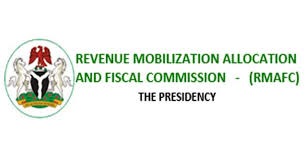The Revenue Mobilisation Allocation and Fiscal Commission (RMAFC) has provided reasons for the delay in submitting a new revenue formula to President Bola Ahmed Tinubu.
Chairman Mohammed Bello Shehu informed The Nation that evolving socio-economic conditions and the need for comprehensive scientific analysis have made it essential to reassess the revenue formula.
Shehu emphasized the considerable changes over the past two years, necessitating a revised approach. “We cannot just submit what we have done before because the dynamics and the atmosphere have changed from two years ago to what it is now,” he stated.
Highlighting the importance of gaining the Tinubu Administration’s support, Shehu expressed confidence that the commission will finalize the process by year-end. He also cited the impending expiration of tenures for approximately 20 RMAFC commissioners as a significant factor in the delay. The uncertainty of these members receiving a second tenure complicates the reconstitution of the committee tasked with developing the new revenue formula.
“We still have to get better information and do the proper analysis scientifically so we cannot rush now into it,” Shehu insisted.
On the contentious issue of local government autonomy, Shehu pointed to constitutional provisions as complicating factors. State assemblies are constitutionally empowered to oversee local governments, leading to issues with joint accounts. He referenced the Abia vs. the Federation lawsuit, noting that the Supreme Court’s decision removed RMAFC’s role in joint local government accounts.
Shehu also mentioned former President Muhammadu Buhari’s Executive Order aimed at enhancing local government autonomy, which faced strong opposition from state governors, resulting in its non-implementation. He suggested that the National Assembly address the constitutional contradictions to resolve these issues, noting that amendments require approval from two-thirds of both national and state assemblies.
Criticizing the current state of local governments, Shehu described them as non-functional due to governors’ overbearing influence. He lamented the decline in local government initiatives, comparing the current situation unfavorably to 13 years ago when local governments actively built roads and schools. “Now, governors have completely overshadowed local administration,” he added.
Drawing a comparison between governorship and local government elections, Shehu observed that while state elections often show competitive results, local government polls overwhelmingly favor the sitting governors’ parties. “Where you have semblance of fair elections, it is better for our democracy,” he concluded.



























